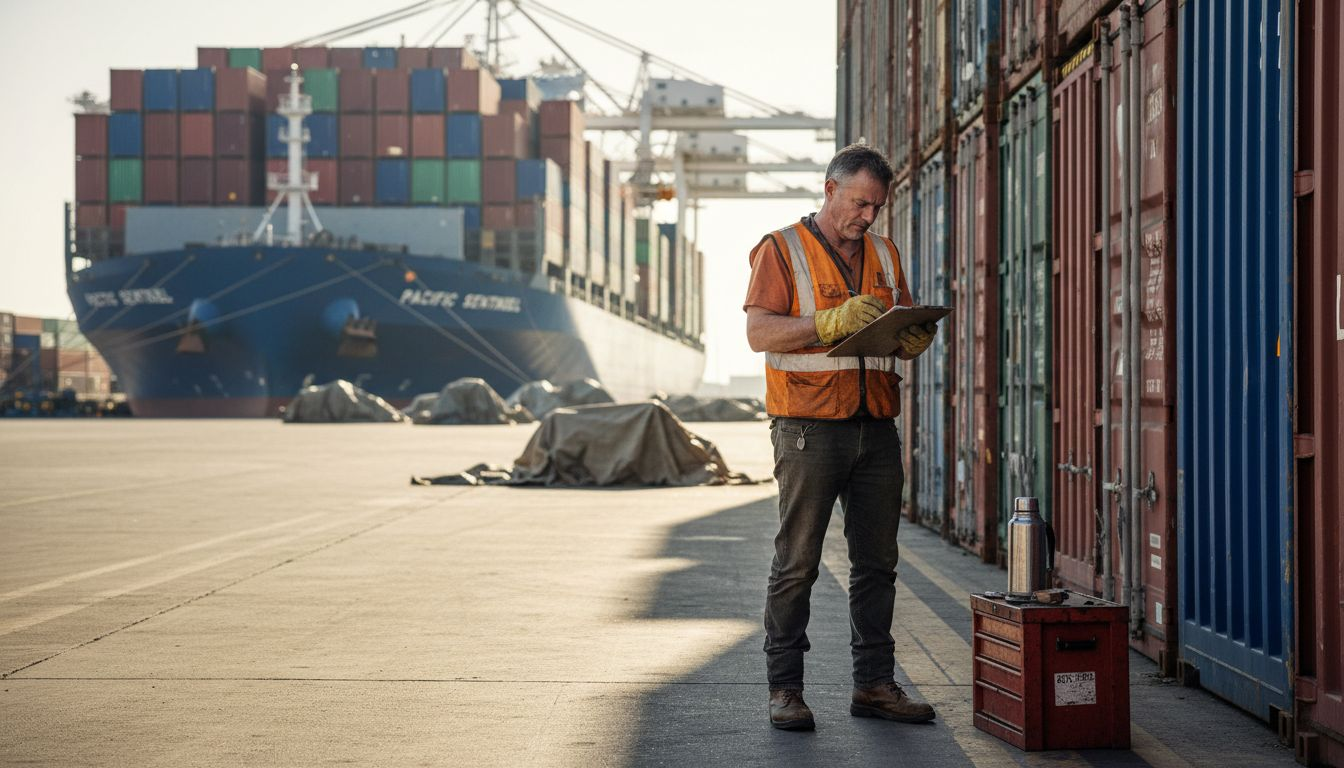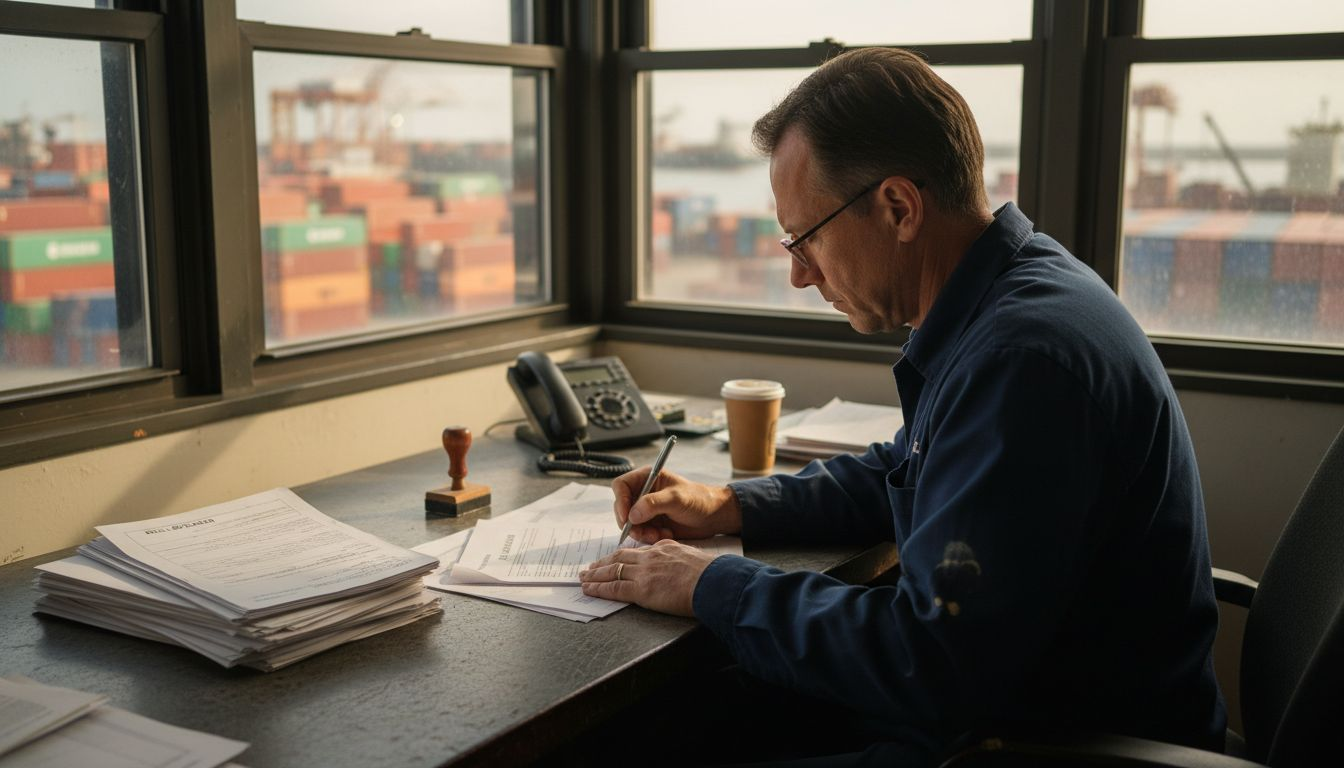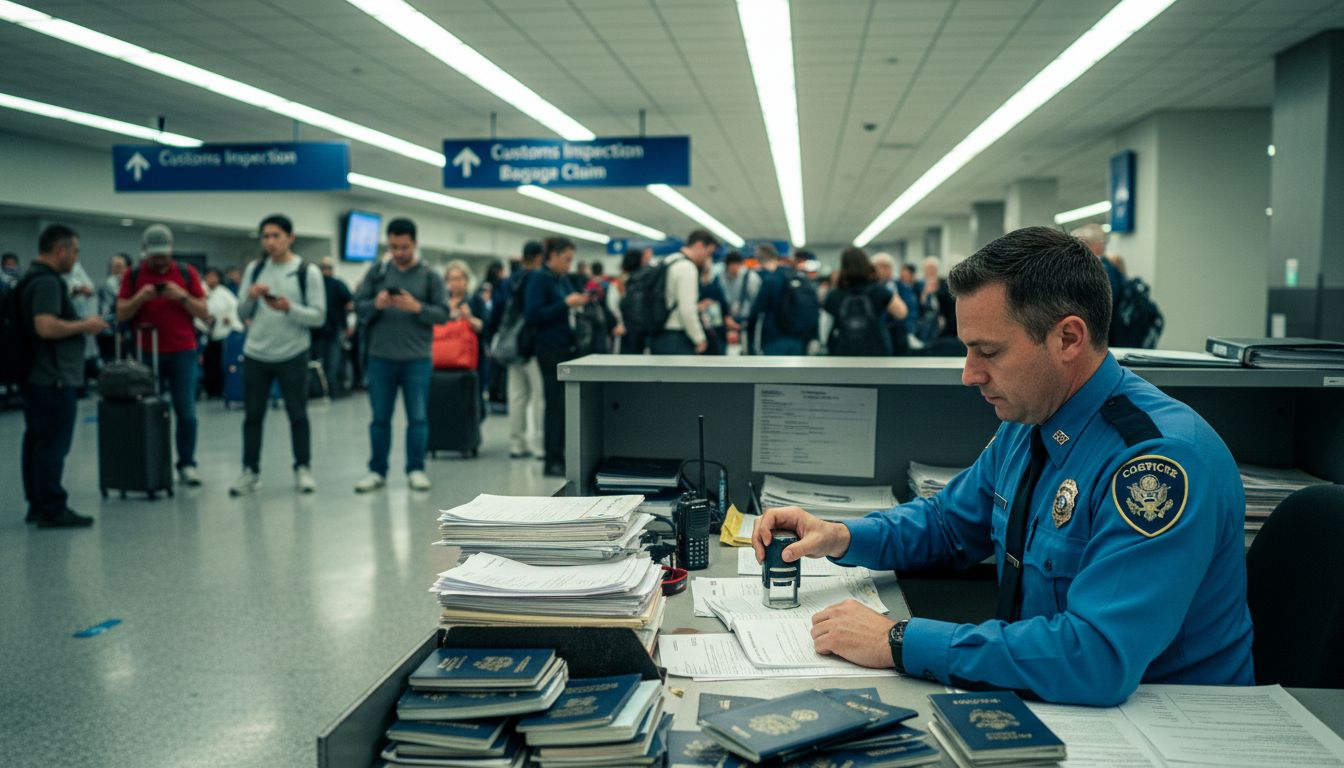Companies shipping across borders depend on experts to keep goods moving and make sure nothing gets stuck in red tape. You might expect that freight forwarders and customs brokers do more or less the same job, since both work behind the scenes of global trade. But only about 14,000 licensed customs brokers serve all US imports each year while freight forwarders number in the tens of thousands and run entirely different sides of the operation. Their differences could be the reason your shipment arrives on time or gets held up at customs.
Table of Contents
- Defining Customs Brokers And Freight Forwarders
- The Importance Of Customs Brokers And Freight Forwarders
- How Customs Brokers And Freight Forwarders Operate
- Key Differences Between Customs Brokers And Freight Forwarders
Quick Summary
| Takeaway | Explanation |
|---|---|
| Customs brokers ensure regulatory compliance | They facilitate the import/export process by handling documentation and ensuring adherence to trade regulations. |
| Freight forwarders manage logistics and transportation | They coordinate the physical movement of goods, negotiate rates, and streamline shipping operations for businesses. |
| Both roles are essential for global trade | Customs brokers and freight forwarders together optimize supply chains, reduce risks, and accelerate international market access. |
| Technology enhances their operational efficiency | Utilizing advanced technology, these professionals improve tracking, compliance checks, and overall communication in global logistics. |
| Understanding their differences is crucial | Knowing whether to hire a customs broker or freight forwarder helps businesses tailor their international shipping strategies effectively. |
Defining Customs Brokers and Freight Forwarders
In international trade, two critical professional roles help businesses navigate complex shipping and regulatory landscapes: customs brokers and freight forwarders. While these professionals might seem similar, they perform distinctly different functions crucial to global commerce. Understanding their unique responsibilities can help businesses optimize their international shipping strategies.
What is a Customs Broker?
A customs broker is a licensed professional who specializes in facilitating the import and export of goods across international borders. According to U.S. Customs and Border Protection, these experts serve as intermediaries between importers and government regulatory agencies. Their primary responsibilities include:
- Ensuring accurate classification of imported goods
- Calculating and processing customs duties and taxes
- Preparing and submitting complex import documentation
- Advising clients on compliance with international trade regulations
Customs brokers must be deeply knowledgeable about ever-changing international trade laws, tariff schedules, and regulatory requirements. Learn more about customs import broker services to understand how these professionals can streamline your international shipping process.
Understanding Freight Forwarders
Freight forwarders are logistics professionals who coordinate and arrange shipments for businesses engaged in international trade. Unlike customs brokers who focus on regulatory compliance, freight forwarders manage the actual transportation and logistics of goods. Their key functions include:
- Negotiating shipping rates with carriers
- Consolidating and booking cargo space
- Preparing shipping documentation
- Tracking and managing international shipments
- Providing comprehensive logistics solutions
These professionals work across multiple transportation modes, including air, ocean, and ground freight, creating comprehensive shipping strategies that optimize cost and efficiency for businesses engaged in global trade. Their expertise allows companies to focus on their core business while ensuring smooth international shipping operations.
The Importance of Customs Brokers and Freight Forwarders
In the complex world of international trade, customs brokers and freight forwarders play pivotal roles that extend far beyond simple transportation and documentation. Their expertise helps businesses navigate intricate global shipping regulations, minimize financial risks, and optimize supply chain efficiency.
Strategic Risk Management
Customs brokers and freight forwarders serve as critical risk management professionals for businesses engaged in international commerce. According to International Trade Administration, they help organizations mitigate potential challenges by:
- Preventing costly regulatory compliance errors
- Reducing the likelihood of shipment delays
- Minimizing potential customs penalties
- Ensuring accurate documentation and classification
By proactively managing these complex processes, these professionals protect businesses from potentially significant financial and operational disruptions. Explore our comprehensive guide on freight forwarder roles to understand how these experts safeguard your international trade operations.
Economic and Operational Efficiency
Beyond risk management, customs brokers and freight forwarders directly contribute to a company’s economic performance. Their specialized knowledge allows businesses to:
- Optimize shipping routes and transportation methods
- Negotiate more competitive freight rates
- Streamline customs clearance processes
- Reduce overall logistics expenditures
- Accelerate international market expansion
By leveraging their extensive network of carrier relationships and deep understanding of international shipping regulations, these professionals help businesses transform logistical challenges into strategic opportunities. Their expertise enables companies to focus on core business activities while ensuring smooth, cost-effective global trade operations.

How Customs Brokers and Freight Forwarders Operate
The operational mechanisms of customs brokers and freight forwarders involve intricate processes that ensure smooth international trade transactions. These professionals navigate complex regulatory environments and transportation networks to facilitate global commerce efficiently and compliantly.
Regulatory Compliance and Documentation
Customs brokers and freight forwarders operate within a highly regulated framework that demands meticulous attention to detail. According to U.S. Customs and Border Protection, their operational workflow involves:
- Comprehensive documentation preparation
- Accurate classification of international shipments
- Verification of import/export regulations
- Calculation of applicable duties and taxes
Each transaction requires precise documentation and understanding of international trade laws. Learn more about broker operations to understand the intricate compliance requirements these professionals manage.
Technology and Communication Strategies
Modern customs brokers and freight forwarders leverage advanced technology to streamline their operations. Their technological infrastructure enables:
- Real time shipment tracking
- Electronic document management
- Automated compliance checking systems
- Integrated communication platforms with global carriers
- Advanced risk assessment algorithms
These technological tools allow professionals to handle complex international shipping requirements with unprecedented speed and accuracy. By combining regulatory expertise with cutting edge technological solutions, customs brokers and freight forwarders transform potential logistical challenges into seamless, efficient global trade experiences.
Key Differences Between Customs Brokers and Freight Forwarders
While customs brokers and freight forwarders both play critical roles in international trade, their responsibilities, legal obligations, and operational focuses differ significantly. Understanding these distinctions helps businesses select the right professional for their specific logistics and regulatory needs.
![]()
Primary Functional Responsibilities
Customs brokers and freight forwarders serve fundamentally different purposes in the international shipping ecosystem. According to International Trade Administration, their core functional differences include:
- Customs Brokers: Specialize in regulatory compliance and government interactions
- Freight Forwarders: Focus on transportation logistics and cargo movement
Explore the nuanced differences in professional roles to understand how these specialists contribute uniquely to global trade operations.
Legal and Operational Scope
The legal frameworks governing customs brokers and freight forwarders further distinguish their operational capabilities. Customs brokers are licensed professionals authorized to interact directly with government agencies, processing import/export documentation and ensuring regulatory compliance. Freight forwarders, conversely, concentrate on physical cargo transportation, managing shipping routes, negotiating carrier rates, and coordinating multimodal transportation strategies.
Key operational differences include:
- Customs brokers interact exclusively with government regulatory bodies
- Freight forwarders engage with multiple transportation carriers
- Brokers process legal documentation and tax calculations
- Forwarders manage physical movement and logistics of goods
These distinct roles ensure comprehensive and efficient international trade processes, with each professional contributing specialized expertise to global commerce.
To help clarify the distinct responsibilities of customs brokers and freight forwarders, the table below compares their key roles and interactions in international trade.
| Aspect | Customs Broker | Freight Forwarder |
|---|---|---|
| Main Focus | Regulatory compliance and government documentation | Logistics coordination and cargo transportation |
| Key Responsibilities | Classify goods, process duties/taxes, submit import/export forms, ensure compliance | Negotiate shipping rates, book cargo, consolidate shipments, track and manage transportation |
| Interactions | Government agencies, importers, exporters | Carriers, shippers, consignees |
| Legal Requirements | Must be licensed by government authorities | No mandatory license for general operations |
| Scope of Service | Documentation, customs clearance, compliance advice | Multi-modal logistics, shipping route planning, cargo consolidation |
| Technology Use | Compliance software, electronic filing | Real-time tracking, electronic booking, shipment visibility |
Ready to Simplify Your Global Shipping Challenges?
Are you struggling with the confusion of customs brokers versus freight forwarders? You already know that making the wrong choice can lead to compliance mistakes, shipping delays, and extra fees. At Worldwide Express, Inc., we turn this complexity into clarity with personalized solutions designed for businesses just like yours. If you need a team that understands regulatory compliance, documentation, and real-time tracking, you are in the right place. Discover more industry insights on our Uncategorized page to see how these roles impact your operations.

Take the first step to worry-free international shipping. Visit our main site to find the right support for customs clearance, freight forwarding, and tailored global logistics. Secure a competitive advantage for your business and get in touch with us today. The world of international trade moves fast. Let us help you stay ahead.
Frequently Asked Questions
What is the main role of a customs broker?
A customs broker is a licensed professional who facilitates the import and export of goods across international borders, ensuring compliance with government regulations, processing duties and taxes, and handling necessary documentation.
How do freight forwarders differ from customs brokers?
Freight forwarders primarily manage the logistics and transportation of goods, while customs brokers focus on regulatory compliance and interactions with government agencies related to import and export procedures.
Why is it important to hire a customs broker for international shipping?
Hiring a customs broker is crucial for ensuring compliance with complex trade regulations, preventing costly errors, and facilitating smooth customs clearance, which can save time and money for businesses.
Can a freight forwarder also act as a customs broker?
While some freight forwarders can provide customs brokerage services, it’s essential to verify that they are licensed as customs brokers. Not all freight forwarders have the qualifications to handle customs compliance and documentation.
Recommended
- Broker vs Freight Forwarder: Key Differences Explained – Worldwide Express, Inc.
- Understanding Cargo Freight Forwarders and Their Role – Worldwide Express, Inc.
- Understanding Customs Broker Near Me: What You Need to Know – Worldwide Express, Inc.
- Understanding the Role of a Customs Import Broker – Worldwide Express, Inc.






